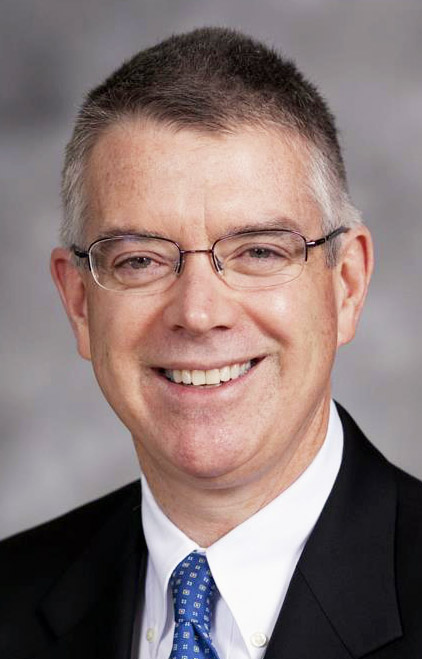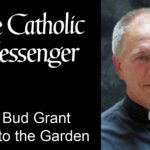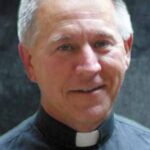By Dr. Tim Millea
Earlier this year, a Gallup poll reported that only 47% of American adults belong to a church, synagogue or mosque. This is the first time that figure has dropped below half. Pollsters first asked this question in 1937, when 73% reported membership. That number remained very stable over many decades, with 70% membership reported in 1999. The precipitous drop by one-third over the past 20 years is troubling to all faiths. However, among specific denominations, the most dramatic decline since 2000 has been in the Catholic Church, which has seen an 18% drop compared to a 9% loss in Protestant churches.

Clearly, this is a significant concern for the Catholic Church, and requires attention on many fronts. One of the areas where this problem intersects with our daily lives is the health care arena. If the general population is becoming less religious, should we be concerned about the religious beliefs of those who care for our medical needs? As faithful Catholics, will we be able to see a physician who respects our beliefs and values? The answers to these questions provide hope and optimism.
When evaluated for honesty and ethical standards, physicians in general have consistently ranked high. A Gallup poll in 2000 reported that 58% of people surveyed reported “very high or high” ratings for physicians. A similar poll in late 2020 revealed an increase of this rating to 77%. This growth in trust is encouraging, but it does not address the concern about receiving care from a faith-guided physician that respects, or perhaps shares, the patient’s beliefs.
Two studies are enlightening and seem to provide positive signs. A landmark University of Chicago study in 2005 surveyed physicians in the U.S. about their religious characteristics. Among Catholic physicians, 68% described themselves as “intrinsically religious,” meaning their religious beliefs were incorporated into all areas of their life. In 2017, a Mayo Clinic study revealed that 65% of physicians believe in God and slightly more than half (51%) described themselves as “religious.”
This data can seem confusing and contradictory. For the first time, only a minority of Americans have a religious affiliation, yet among the majority of physicians, there seems to be a stable adherence to religious beliefs. If this is true of physicians, we can gain some solace and reassurance. So, in the world of Catholic health care committed to the morals and principles of our faith, what does the future hold? Young and future Catholic physicians answer that question best.
Dr. Lola Abdul is a physical medicine and rehabilitation resident in Grand Rapids, Michigan, and has been a member of the Catholic Medical Association (CMA) since medical school. In her opinion, Catholic medical students and residents are responding to today’s social issues. As Dr. Abdul observes, “There seems to be a growing culture of darkness and confusion in our society. Many young people are seeking real, authentic answers to some difficult life questions, and they are only finding them in our faith.”
These aspiring physicians yearn for more, which Dr. Abdul describes as “a calling, a sense of meaning and purpose which is most fully found by combining their career goals with their faith.”
Francis Landman, a fourth-year medical student at the University of North Dakota and a CMA student member, echoes that comment. “Young people in the church today are recognizing the brokenness of the world around us. We are starting to wake up to the horrible effects of things like contraception, abortion, pornography, the destruction of the family, etc.” Francis sees it as a call to action. “It is driving us to seek out positions to change the culture.”
The CMA’s membership offers proof of this “youth movement.” In 2017, medical students accounted for 7% of total CMA membership. Today, that figure stands at 14%. The energy, enthusiasm and dedication they bring to those around them — from CMA members to classmates to patients — is profound. They offer more than a ripple effect for the future of medicine. They are a wave that can change the health care landscape for the good of all.
In health care, a “feel good” story is taking shape. The future of medicine needs physicians who know that science and faith are not in opposition, but rather both are necessary to provide the best care to others in need. The growing number of young Catholic physicians, current and future, understand the need for dignity and respect for every person, regardless of their individual circumstances. They understand Jesus’ instruction to “love your neighbor,” and to see the face of Christ in each of them.
Dr. Abdul cites a Gospel message for inspiration: “The light shines in the darkness and the darkness cannot overcome it” (John 1:5). Please pray for these faith-filled physicians, that they may remain strong and committed with their response to God’s call in their vocation. Their efforts can help overcome the problems of today and provide a better tomorrow.
(Dr. Tim Millea is president of the St. Thomas Aquinas Medical Guild and a member of St. Paul the Apostle Parish in Davenport.)











